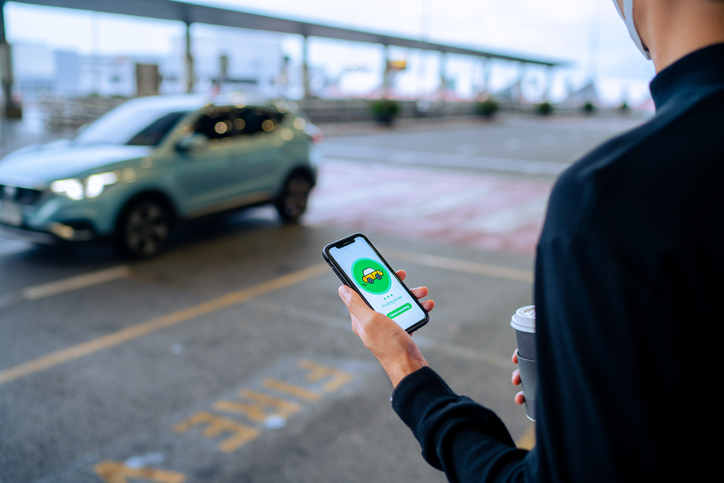Uber passengers, like passengers of any other taxi or rideshare service, have certain rights. In Texas, these rights should typically include:
- Right to Safe Transportation: Drivers should drive in a safe manner and follow traffic laws. Vehicles should be maintained in a safe manner.
- Right to Non-Discrimination: Drivers cannot refuse service based on race, color, religion, national origin, disability, sexual orientation, sex, marital status, gender identity, age or any other characteristic protected under applicable federal or state law.
- Right to Fair Pricing: Uber should provide an estimate of the fare before you begin your trip.
- Right to Privacy: Your personal information should be protected, and drivers should not share your personal information with others.
- Right to Refuse Unsafe Conditions or Behavior: You have the right to end the trip if the driver displays any conduct that makes you feel unsafe or uncomfortable.
- Right to File a Complaint: If you have any issues with your ride, you can report it to Uber’s customer service for investigation.
Uber Driver Insurance Coverage -Texas law requires that all drivers maintain a minimum amount of insurance to operate their vehicles within the state:
- $30,000 in liability insurance for each person injured in an accident;
- $60,000 in total insurance coverage per accident;
- $25,000 in coverage for property damage incurred in an accident.
However, drivers for ride sharing companies are subject to additional requirements that went into effect on January 1, 2016. This law requires added liability insurance for drivers during times when their ride-hailing app is active but no passenger is in the car:
- $50,000 in liability insurance coverage for each person injured in an accident;
- $100,000 in total coverage per accident;
- $25,000 in property damage coverage per accident.
Under state law, if you are injured in an Uber or other ride sharing trip, you can collect compensation from the “at-fault” driver and their insurance company.
- Uber Insurance Coverage – Unlike other accidents, however, it is not always clear who is liable for your accident. The availability of Uber’s insurance coverage and the applicable liability limits depend on the driver’s status when an accident happens. For example, Uber’s insurance company will only compensate you if the driver was working when the vehicle struck you. You will need to file a claim against the driver or their insurance provider if they were not logged into the app. The Uber driver’s insurance coverage will still be the primary source of compensation if the driver is logged into the Uber app and looking for a passenger. However, if your Uber driver was “on-the-clock” when the accident occurred, you won’t necessarily file a claim with the driver’s insurance policy. Instead, Uber’s $1 million or above umbrella policy should cover all of your injuries and damages.
- Personal Injury Lawsuit- If you are injured as an Uber passenger in Texas due to the negligence of the driver, you may be entitled to compensation for your injuries. This compensation can cover medical expenses, lost wages, pain and suffering, and other damages. You may need to file a personal injury claim against the at-fault party, which may include the Uber driver, Uber itself, or other liable parties.
Another thing to keep in mind is that companies like Uber treat Uber drivers as independent contractors who must maintain their own insurance when passengers are not actually in the vehicle. This is an important distinction because of the increased liability coverage required by the state of Texas for drivers who are active on these ride-hailing apps but who are not currently transporting a passenger. Any at-fault accidents that occur during these periods would be charged to the driver’s personal insurance policy. In a recent case, Freyer v. Lyft, Inc., 639 SW 3d 772, (Tex. App. 2021), the case was appealed and the Appellate Court upheld the Texas court which affirmed the independent contractor status of drivers who drive on behalf of ride-sharing companies. The plaintiff’s attempt to impose liability on the company was rejected. This means then that Uber can not be held responsible for the actions of its drivers causing a collision under a “vicarious liability” theory for a lawsuit. As a result, filing a lawsuit against Uber for damages due to a collision will usually be useless.
Getting hurt in a collision with an Uber vehicle doesn’t necessarily mean the driver should be liable. Someone else might have caused the crash. Instead of filing a claim or lawsuit against the Uber driver, you might be able to hold another party responsible, such as:
- The vehicle or part manufacturer that supplied a defective product;
- A government entity that didn’t repair dangerous road conditions;
- The truck driver or trucking company that violated federal regulations;
- Another motorist.
If you believe you have a valid legal claim against Uber or its driver, you may choose to file a lawsuit. It’s advisable to consult with a personal injury attorney who specializes in ride share accidents to guide you through the process. Ceja Law, PLLC will be able to explain the laws and regulations in Texas and help you determine whether, and which party, you might have legal action against as a result of your accident. Contact Ceja Law Firm, PLLC today for a free initial consultation and case evaluation. You can reach us at 713-742-2079, or visit our office in Houston.
